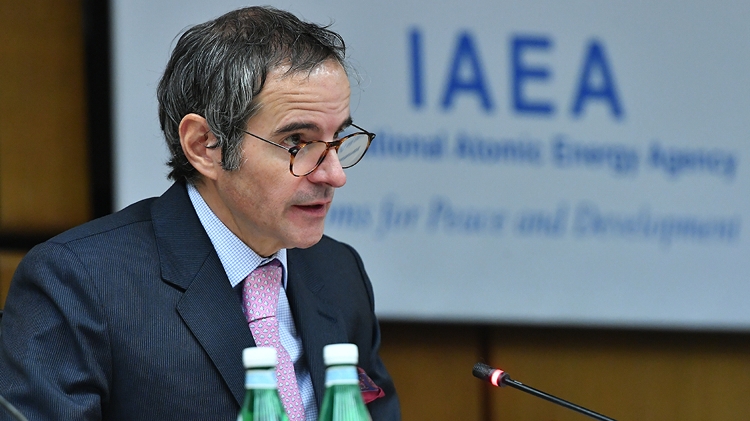IAEA Chief Highlights Brazil's Crucial Role in Global Nuclear Sector During Key Visit
"In times of global crises, nuclear technology remains a force for good, addressing challenges like climate change and hunger," Grossi stated.

The IAEA Director General, Rafael Mariano Grossi, has underscored Brazil's significant role in the global nuclear sector during a comprehensive visit aimed at advancing the country's use of nuclear technologies to meet its development objectives.
Grossi's three-day itinerary began in Brasilia with a lecture at the Rio Branco Institute, where he discussed the positive impact of nuclear technology on peace and development, emphasizing the importance of active diplomacy.
"In times of global crises, nuclear technology remains a force for good, addressing challenges like climate change and hunger," Grossi stated.
Nuclear Energy for Net Zero
At the Chamber of Deputies, Grossi highlighted nuclear energy's growing global importance and Brazil's pivotal position in the nuclear dialogue. "As we face the challenge of climate change, the key role of nuclear energy is set to grow, and Brazil is uniquely situated to take full advantage of this. The IAEA is ready to help," he said.
Brazil currently operates two nuclear power reactors with a third under construction. The country's 2050 national energy plan envisions adding 10GW of nuclear capacity over the next 30 years, sufficient to power about 10 million people, potentially incorporating Small Modular Reactors (SMRs) after 2030.
Advancing Brazil's Nuclear Sector
Grossi met with Minister of Mines and Energy Alexandre Silveira to discuss Brazil's advancements in the nuclear sector, from energy generation to research. He encouraged the continuous development of Brazil's nuclear fuel cycle, highlighting its potential to become a key player in the global nuclear sector production chain.
Grossi also addressed the Brazilian Nuclear Program Development Committee and met with Defense Minister José Mucio Monteiro, emphasizing the critical role of nuclear energy in Brazil's economic growth and decarbonization plans.
Contribution to the G20
During his visit, Grossi highlighted the IAEA's new collaboration with the G20, initiated by the Brazilian Presidency, to integrate nuclear power into the global energy dialogue. The IAEA is providing briefings and reports to the G20’s Energy Transitions Working Group, emphasizing the need to accelerate financing to achieve net-zero targets.
Access to Cancer Care
In Rio de Janeiro, Grossi visited the Nuclear Medicine Service at António Pedro University Hospital, where he saw the impact of the IAEA’s Rays of Hope initiative, which improves cancer care in low- and middle-income countries. He also noted the IAEA's support to the Brazilian Navy in increasing medical services for remote Amazon communities, including the installation of mammography machines on naval ships for breast cancer diagnostics.
Protecting the Ocean
Grossi signed an agreement with Minister of Science, Technology and Innovation Luciana Santos to use nuclear science to study environmental issues in Antarctica, including harmful algal blooms, microplastics, and ocean acidification.
Nuclear Security and Naval Propulsion
Grossi established the IAEA’s first Collaborating Centre on Nuclear Security in Latin America at the Instituto de Pesquisas Energéticas e Nucleares (IPEN-CNEN), which will focus on computer security, radiation detection, and physical protection. He also discussed Brazil's plans for naval nuclear propulsion with Admiral Marcos Olsen, reaffirming the commitment to uphold the highest non-proliferation standards.
Regional Cooperation
Grossi visited the headquarters of the Brazilian-Argentine Agency for Accounting and Control of Nuclear Materials (ABACC), recognizing its vital role in regional stability and looking forward to enhanced cooperation as Brazil develops naval nuclear propulsion.
“ABACC has played a key role in regional stability and its importance will only grow as Brazil embarks on naval nuclear propulsion. I am looking forward to continuing the strong cooperation between the IAEA, ABACC, Brazil, and Argentina,” Grossi concluded.
- READ MORE ON:
- Rafael Mariano Grossi
- IAEA
- Brazil
- Rio Branco Institute










